Latest News
Taliban: Mullah Ibrahim Sadar Named New Military Chief

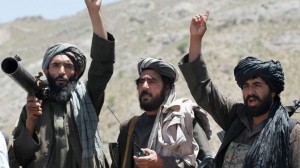 The Taliban have appointed a new military chief as the insurgents try to gain ground rather than talk peace under a new leadership, Taliban officials said in telephone interviews over the weekend.
The Taliban have appointed a new military chief as the insurgents try to gain ground rather than talk peace under a new leadership, Taliban officials said in telephone interviews over the weekend.
They said that the appointment of Mullah Ibrahim Sadar, once a close ally of Taliban founder Mullah Mohammed Omar, heralds a commitment to confrontation at a time when multiple governments are trying to coax the Taliban to the negotiating table.
Sadar is a battle-hardened commander, who gained prominence among Taliban foot soldiers following the movement’s overthrow in 2001. The two officials both spoke on condition of anonymity because they were not authorized to speak publicly for the Taliban.
Sadar’s appointment coincides with an uptick in Taliban attacks against Afghan security forces. The United States has sent additional troops to Afghanistan’s southern Helmand province, where its capital, Lashkar Gah, is under pressure. The provincial council head Kareem Atal earlier said roughly 80 percent of Helmand is already under Taliban control.
So far this month, Taliban fighters have attacked Afghan security forces in northern Kunduz province, briefly taking control of a district headquarters. The militants also overran a district in northern Baghlan province and in eastern Paktia province. Meanwhile, in eastern Nangarhar province, Taliban militants are fighting pitched battles with security forces. Afghanistan’s Ministry of Defense says its security forces are waging operations in 15 provinces.
Mohammad Akbari a member of Afghanistan’s High Peace Council, which is tasked with talking peace with insurgent groups, said there has been no progress in talks since Taliban leader Mullah Akhtar Mansour was killed in a U.S. drone strike in May in Pakistan. Mansour was succeeded by Mullah Haibatullah Akhundzada, and the notorious Haqqani network gained a prominent role in the leadership structure.
“I can’t see any green light toward peace by the Taliban for Afghanistan and instead we have seen an increase in their fighting in the provinces,” Akbari told The Associated Press.
Since Mansour’s death, Pakistan’s Interior Ministry has launched a stepped-up campaign to verify the identity of roughly 1.5 million Afghans living in Pakistan, many possessing Pakistani identity cards, some legally obtained and others illegally acquired. Mansour was carrying a Pakistani passport and identity card under an alias.
The crackdown has resulted in the withdrawal of thousands of suspicious identity cards. Pakistan’s Interior Minister Chaudhry Nisar Ali Khan said that in the last four years, roughly 80,000 suspicious identity cards have been revoked. He didn’t have a figure of the number of cards withdrawn in the latest campaign.
Taliban officials say their fighters, whose families are living in Pakistan, are getting caught up in the crackdown — forcing them to find shelter in Afghanistan. The officials said as a result, in order to accommodate their fighters, they need to expand their territory for practical reasons in addition to their standing military goals.
Pakistan has been bitterly criticized by the Afghan government for not doing more to arrest and expel Taliban fighters from its territory — particularly the Haqqani network, which is blamed by Afghanistan for many of the most brutal attacks. Pakistan, meanwhile, has carried out military operations in its tribal regions that border Afghanistan, and accuses Afghanistan of harboring its own Taliban insurgents who have been carrying out attacks in Pakistan.
Following last week’s militant attack on the American University in Kabul, the Afghan government sent three telephone numbers to Pakistan’s military, believed to belong to those involved in planning the attack, seeking Pakistan’s assistance in tracking down and arresting the culprits. The assault killed 13 people and wounded dozens more.
AP

Latest News
Cost of Uzbekistan-Afghanistan rail transport tariffs opped by 50%
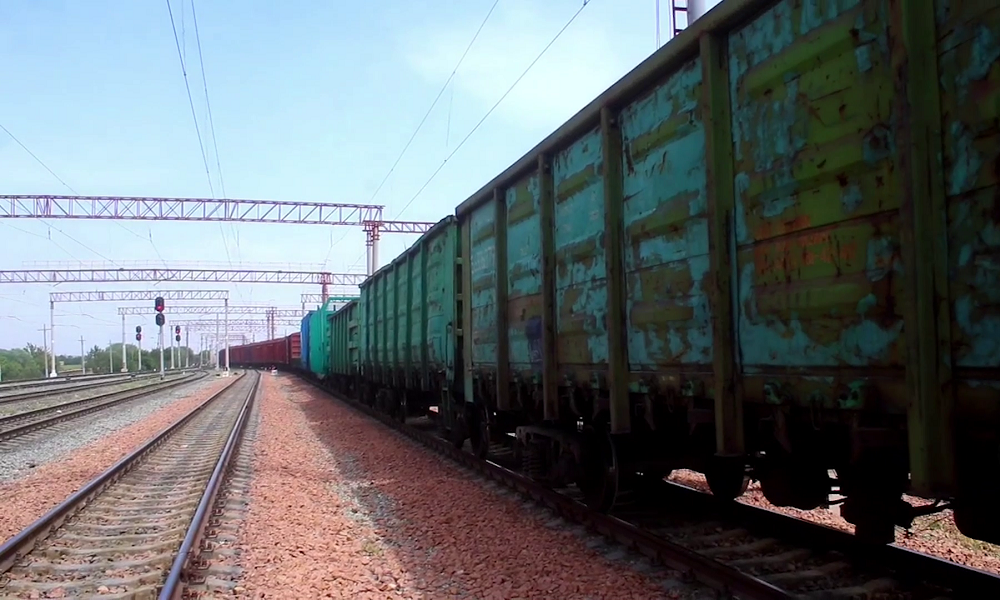
Uzbekistan railway officials in Termez city say they have reduced the cost of Uzbekistan-Hairatan rail transport tariffs by 50 percent.
Goods from China, Kazakhstan, Uzbekistan and other countries enter Afghanistan via this route.
Uzbek railway officials have said in order to facilitate and expand trade relations between the two countries and to support Afghan businessmen, they have reduced the tariffs by 50 percent.
Previously, specific tariffs were charged for the shipments coming from the Afghan government. For example, goods brought in over Friendship Bridge were charged $200 for a 40-ton wagon and $100 for a 20-ton wagon. Similarly, different amounts had to be paid at customs based on different services, but now all payments up to $500 have been waived until the end of the year, said Farhad, head of Termez railway.
Meanwhile, Afghan traders in Balkh welcomed Uzbekistan’s initiative and the creation of facilities in the rail transport sector, but have urged the Islamic Emirate to create more facilities.
Balkh railway officials also said that to increase transfers, they need better facilities so as to ensure a smooth transfer of goods.
The efforts to start practical work on the Afghan-Trans railway line are also underway; this line will start in Uzbekistan and end in Pakistan.
Latest News
Turkey suspends diplomatic visa exemption agreement with Afghanistan

The Turkish Presidency announced Wednesday that the diplomatic visa exemption agreement between Turkey and Afghanistan has been revoked.
According to a statement published by the Turkish Presidency, this decision signed by Turkish President Recep Tayyip Erdoğan, will be implemented starting from June 1st.
The decree signed by the Turkish president states: “The agreement between the Republic of Turkey and the Islamic Republic of Afghanistan on the mutual exemption from visa obligations for holders of diplomatic passports, signed on September 29, 2007, and implemented by the Council of Ministers’ decision on January 8, 2008, will be terminated as of June 1.”
With the revocation of this agreement, Turkish and Islamic Emirate officials will now have to undergo the visa application process for mutual entry into Afghanistan and Turkey.
Turkey made this decision based on Article 3 of Presidential Decree No. 9, which outlines the President’s authority regarding the approval of international agreements.
Latest News
John Kirby likens Israeli airstrike to US bombings in Iraq, Afghanistan

White House spokesman John Kirby defended Israel amid international outrage after an airstrike reportedly killed dozens of civilians in the Gaza Strip — saying the US military “did the same thing.”
“We have conducted airstrikes in places like Iraq and Afghanistan where, tragically, we caused civilian casualties,” he said — adding that the US responded the same way as Israel in the aftermath.
“We owned up to it, we investigated it, and we tried to learn from it to make changes,” Kirby said at Tuesday’s regular White House briefing.
US bombings that killed civilians included “as we pulled out of Afghanistan, where we conducted an airstrike which tragically killed a father and some of his kids,” he said.
“We atoned for it, we learned from it, and we put in place procedures to try to prevent that from happening again, and that’s what our expectations would be in this case.”
Kirby’s comments came after Israel reportedly killed over 40 displaced Palestinians on Sunday in an airstrike.
He said that two senior Hamas leaders had also been killed in the bombing.
“Hamas itself put out a statement celebrating the martyrdom of two of its fighters… So I don’t know how anybody could dispute that they weren’t trying to go after Hamas in a targeted, precise way in this regard,” he said.
“The Israelis have said they used 37-pound bombs, precision guided munitions. A 37-pound bomb is not a big bomb, and it is exactly the kind of munition…
“If, in fact, that’s what they used, it is certainly indicative of an effort to be discrete, targeted and precise,” he said.
“Now, obviously this had tragic results, and obviously that needs to be investigated, and we need to know why even using small-diameter, precision guided munitions this was able to happen, But we’ll have to let the Israelis get to the bottom of that.”
-
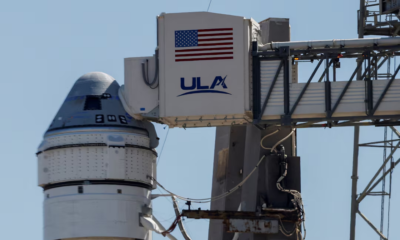
 Latest News4 days ago
Latest News4 days agoNASA, Boeing clear two technical hurdles for Starliner’s debut crew flight
-

 Sport3 days ago
Sport3 days agoAll squads now named for ICC Men’s T20 World Cup 2024
-
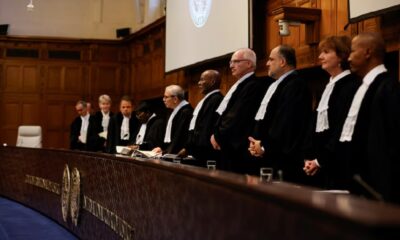
 World5 days ago
World5 days agoWorld Court orders Israel to halt assault on Gaza’s Rafah
-

 World5 days ago
World5 days agoMore than 300 buried in Papua New Guinea landslide, local media says
-

 Sport3 days ago
Sport3 days agoPakistan name 15-member T20 World Cup squad
-
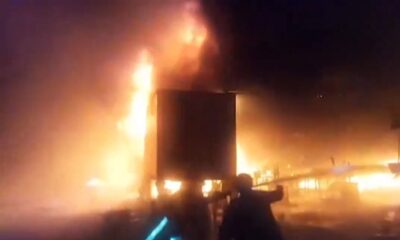
 Latest News4 days ago
Latest News4 days agoFire in Kandahar leaves 3.5 million AFN financial losses
-

 Latest News4 days ago
Latest News4 days ago40 ancient artifacts discovered in Ghor province
-
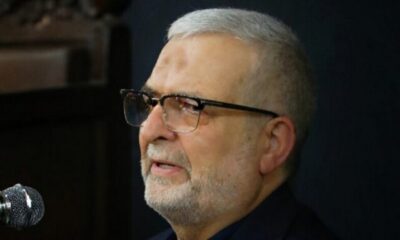
 Latest News4 days ago
Latest News4 days agoIran calls for inclusive govt in Afghanistan to avoid Bonn-style conference














